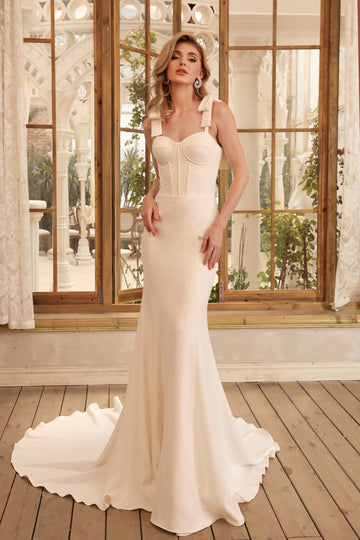Bridal Fashion Around the World: Unique Traditions You Should Know
Bridal Fashion Around the World: Unique Traditions You Should Know
Weddings are one of the most significant events in many cultures around the world, and with them come unique traditions, especially when it comes to bridal fashion. Every country has its own customs and practices that reflect its history, culture, and values. In this article, we explore some of the most remarkable bridal fashion traditions from various countries, highlighting what makes each one unique.
Understanding Global Bridal Fashion Traditions
Bridal fashion is not just about the dress; it embodies the culture and history of a place. From traditional garments to modern interpretations, the evolution of bridal fashion offers a rich tapestry of styles that are a delight to explore. Below, we delve into some unique traditions across different regions.
1. India: The Vibrant Sari and Lehenga
In India, weddings are grand celebrations filled with color and emotion. The bridal attire varies across regions, with the most common garments being the sari and lehenga.
| Bridal Attire | Color Significance |
| Sari | Often red or maroon |
| Lehenga | Various colors, often gold embellished |
Typically, brides wear intricate outfits adorned with embroidery and embellishments that reflect their family's heritage. For instance, in North India, brides often wear a red lehenga, symbolizing auspiciousness, while in South India, a bride might don a silk sari, usually in gold or vibrant hues.

2. Japan: The Elegance of Kimonos
Japanese brides often wear a traditional kimono for their wedding ceremonies. The kimono is a beautifully crafted garment that comes in a variety of colors and designs, often featuring intricate patterns and motifs.
During a Shinto wedding, brides might wear a white kimono, known as shiromuku, representing purity. After the ceremony, they often change into a colorful kimono called iro-uchikake for the reception, showcasing their family heritage through colors and patterns.
3. China: The Dazzling Red Dress
In China, the color red symbolizes happiness and good fortune. Therefore, it is common for brides to wear a red dress, known as a qipao or cheongsam, which is embroidered with golden symbols of prosperity.
Brides often wear multiple outfits throughout the day, including a white western-style dress during the reception. This blend of traditional and modern styles reflects the evolving nature of Chinese bridal fashion.
4. Scotland: The Enchanting Tartan
Scottish brides often embrace their heritage by wearing tartan patterns instead of conventional white gowns. Brides can be seen in tartan dresses, which not only represent their families but also bring a unique twist to bridal fashion.
A traditional Scottish wedding may involve wearing a meticulously crafted kilt by the groom, complementing the bride’s attire, often accompanied by stunning handmade jewelry.
Additional Global Traditions Worth Noting
Aside from the major regions discussed, numerous other cultures have fascinating bridal traditions:
- Mexico: Brides often wear a white dress adorned with colorful embroidery, symbolizing the merging of Catholic and indigenous traditions.
- Egypt: The bride wears a traditional galabeya during the Zaffa, a procession that celebrates the start of the wedding.
- Nigeria: Each ethnic group has its unique attire, often vibrantly colored and richly patterned, with brides flaunting traditional beads and accessories.
The Cultural Significance of Bridal Fashion
Bridal fashion goes beyond aesthetics; it represents a blend of culture, heritage, and the personal identity of the bride. As we see in the various traditions mentioned, these garments often encapsulate significant meanings that extend to family values and community ties.
When planning a wedding, many couples choose to honor their backgrounds while also incorporating modern elements into their bridal fashion. This fusion reflects not only the couple's personal style but also their desire to celebrate their cultural identities.
Tips for Choosing the Perfect Bridal Outfit
Selecting the right bridal outfit can be overwhelming. Here are some tips to assist brides in making their choice:
- Research: Look into your cultural traditions and see what options are available. Understanding the significance of the attire will help in making an informed choice.
- Comfort: Ensure that the outfit allows for ease of movement and comfort, especially considering the long day of celebrations ahead.
- Personal Style: Incorporate personal touches into your outfit, whether through specific colors, accessories, or footwear, to reflect your personality.
Conclusion
Bridal fashion around the world showcases a beautiful spectrum of cultures and traditions, each with its unique narrative. From the vibrant lehengas of India to the elegant kimonos of Japan, every attire tells a story that transcends generations. As global society evolves, so will these traditions, blending modern aesthetics with cultural heritage.
Ultimately, the key takeaway for brides is to honor their roots while expressing individuality in their bridal choice. Whether opting for traditional garb or contemporary fashion, ensuring that it resonates with personal beliefs and cultural significance will make the wedding day even more special. Explore, embrace, and enjoy the rich tapestry of bridal fashion globally, because your wedding day is indeed the most personal celebration of love!
